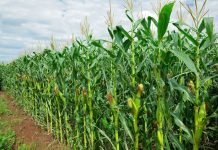
THE majority of Zimbabweans are without cover against life cycle risks such as old age, invalidity, health care, employment injury, among others, a situation that does not only trap them in endless poverty, but leads to social exclusion as well, a National Social Security Authority (Nssa) official has said.
Speaking to journalists during a virtual 2020 insurance and pensions mentorship programme this week, Nssa chief social security officer Tambudzai Jongwe said Zimbabwe was facing the problem of social security exclusion, leaving the majority vulnerable and exposed to poverty.
“Nssa’s schemes are contributory-based, covering the formally employed who constitute 5,5% of the working populace, leaving 94,5% of informal sector workers vulnerable and not covered,” Jongwe said.
She said over the years the contribution base of Nssa has been shrinking due to the economic challenges the country has been facing, resulting in an increase in unemployment levels and the number of people in the informal sector, where the authority does not collect contributions and the emigration of the economically active Zimbabweans.
According to Nssa, the total number of registered employers is 106 310. Of this figure, only 26 997 are active.
“This scenario negatively affects the financial viability and sustainability of Nssa schemes in terms of financing and expenditure. It also affects benefit levels,” Jongwe said.
She said possible interventions to the shrinking contribution base include continuous and periodic reviews of contribution rates and insurable, increasing the retirement age, which would result in people being employed for longer periods and reducing the number of years in which they access a pension.
Currently Nssa schemes are 55 years for early retirement in arduous occupations, 60 years for normal retirement and 65 years for late retirement.
She also said extending tax financed coverage would assist.




